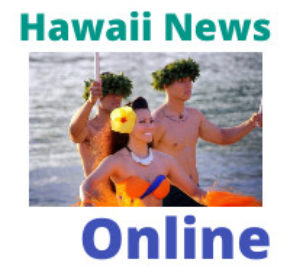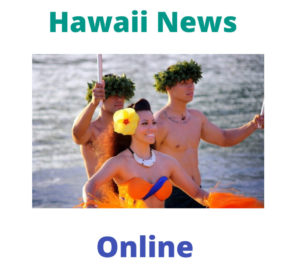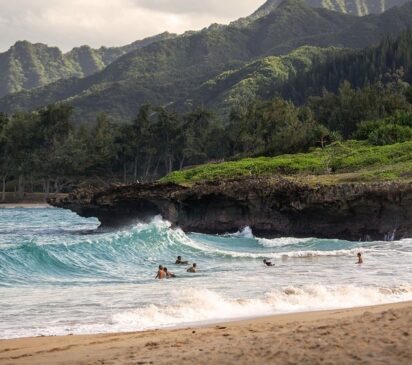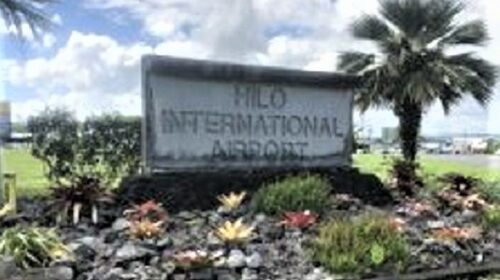Hawaii Tourism publishes plan for Big Island
The Hawaii Tourism Authority (HTA) has published the 2021-2023 Hawaii Island Destination Management Action Plan (DMAP). It is part of HTA’s strategic vision and continuing efforts to manage tourism in a responsible and regenerative manner. It was developed by the residents of Hawaii Island, and in partnership with the County of Hawaii and the Island of Hawaii Visitors Bureau (IHVB). The DMAP serves as a guide to rebuild, redefine and reset the direction of tourism on Hawaii Island. It identifies areas of need as well as solutions for enhancing the residents’ quality of life and improving the visitor experience.
“Our heartfelt gratitude goes to the resident participants of Hawaii Island who committed themselves to the DMAP process and were willing to face tough issues, embrace diverse viewpoints, explore a range of possibilities, and identify actionable priorities. Enhancing the quality of life within our local communities by protecting and caring for the things we cherish most, will subsequently provide a unique array of experiences for travelers who are mindful of and respectful to the places they will visit on the island,” said John De Fries, HTA’s president and CEO.
The community-based plan focuses on key actions that the community, visitor industry and other sectors deem necessary over a three-year period. The foundation of the Hawaii Island DMAP is based on HTA’s 2020-2025 Strategic Plan and the 2020-2025 Hawaii Island Tourism Strategic Plan (TSP).
“The vision for tourism on Hawaii Island is ‘Ola ka Aina, Ola ke Kanaka’ – ‘Healthy Land, Healthy People.’ What this means is destination resilience: protecting our natural and cultural resources, and helping our community thrive not just survive. The County of Hawaii is working on strategies that lift up tourism as a catalyst for economic diversification. The Destination Management Action Plan identifies actions that help the county partner with the visitor industry to get people back to work in a diversified way, while protecting our land and our people,” said Hawaii County Mayor Mitch Roth.
The actions of the Hawaii Island DMAP are based on the four interacting pillars of HTA’s Strategic Plan – Natural Resources, Hawaiian Culture, Community and Brand Marketing:
Natural Resources
- Protect and preserve culturally significant places and hotspots.
- Support and promote aina-based education and practices to protect and preserve our natural resources so that residents and visitors will aloha aina.
- Connect with community networks and partner with community-based organizations to collaboratively identify sites, set carrying capacities, and implement stewardship plans to protect and preserve our natural resources.
Hawaiian Culture
- Develop resources and educational programs to perpetuate authentic Hawaiian culture and Olelo Hawaii.
Community
- Create opportunities for ongoing dialogue, communications, and engagement between the visitor industry, government and communities to improve community-industry relations and better serve the community.
- Promote agritourism, and partner with Hawaii Island’s agriculture industry to support local food security.
- Invest in community-based programs that enhance quality of life for communities.
- Advocate/create more funding sources to improve infrastructure.
Brand Marketing
- Implement a comprehensive communications and education plan that facilitates positive community-visitor relations and pono practices, including the Pono Pledge.
- Improve enforcement of vacation rental regulations.
These actions were developed by the Hawaii Island steering committee, comprised of residents representing the communities they live in, as well as the visitor industry, different business sectors, and nonprofit organizations, with community input. Representatives from the County of Hawaii, the Hawaii Island TSP Action Cohorts, HTA and IHVB also provided input throughout the process.
“It is truly my desire that these recommendations manifest into positively changing the level of consciousness of both residents and visitors. As residents, we greatly value and care for our island home and lifestyle and need our visitors to respect and value it as well. Travelers that walk and explore with a heightened level of purpose and intention can be a part of improving and preserving our beautiful home,” said Kaiulani Blankenfeld, director of Hawaiian culture at Fairmont Orchid and steering committee member.
The Hawaii Island DMAP process started in July 2020 and continued with a series of virtual steering committee meetings, as well as two virtual community meetings in November.
“It was very rewarding for me personally to have been invited to participate in helping to shape a new path and strategy for rebuilding our tourism industry. I learned a lot from my colleagues and am particularly enthusiastic that addressing the resident and community concerns around the social, cultural and environmental impacts are treated as actionable issues,” said Charles Young, Hookena representative for the Aha Moku Advisory Committee and steering committee member.
The members of the Hawaii Island steering committee are:
- Micah Alameda (HTA Board member, Na Leo TV)
- Craig Anderson (Island of Hawaii Chapter Chairperson, Hawaii Lodging and Tourism Association)
- Ross Birch (Executive Director, Island of Hawaii Visitors Bureau)
- Kaiulani Blankenfeld (Director of Hawaiian Culture, Fairmont Orchid)
- Margo Mau Bunnell (General Manager, Roberts Hawaii)
- Ulu Ching (Senior Program Manager, Conservation International)
- Tane Datta (Owner, Adaptations, Inc.)
- Jessica Ferracane (Public Affairs Specialist, Hawaii Volcanoes National Park)
- Kaiu Kimura (Executive Director, Imiloa Astronomy Center)
- Kuuipo Kumukahi (HTA Board member, Hyatt Regency Waikiki)
- Wendy Laros (President and CEO, Kona-Kohala Chamber of Commerce)
- Cheryl Kauhane Lupenui (President and CEO, The Kohala Center)
- Linda Nako (President, Hawaii Island Visitors Bureau and Sales Manager, Hilo Hawaiian Hotel)
- Jesse Potter (President, Pohaha I Ka Lani)
- Rachel Solemsaas (Chancellor, Hawaii Community College)
- Pomai Weigert (AgBusiness Consultant, GoFarm Hawaii)
- Miles Yoshioka (Executive Officer, Hawaii Island Chamber of Commerce)
- Charles Young (Hookena Representative, Aha Moku Advisory Committee)
- Kuhao Zane (Designer and Entrepreneur, Sig Zane Designs)
“COVID-19 has created a substantial downturn in the visitation to the Hawaiian Islands and although we are focused on the recovery process, I commend HTA and the County of Hawaii for not taking their eye off the ball. Programs lined out in HTA’s four-pillar plan have continued to take the forefront and will be the basis of recovery through mindful visitation where the DMAP will be the mechanism to reach the outlined goals. I am proud to have been a member of the Hawaii Island steering committee and look forward to working with our stakeholders to achieve the DMAP goals,” said Ross Birch, executive director of the Island of Hawaii Visitors Bureau and steering committee member.
The Hawaii Island DMAP is available on HTA’s website:
www.hawaiitourismauthority.org/media/7040/hta-hawaii-island-action-plan.pdf
Oahu’s DMAP process started this month. The Maui Nui DMAP and the Kauai DMAP were recently published and are available on HTA’s website:
www.hawaiitourismauthority.org/media/6860/hta-maui-action-plan.pdf
www.hawaiitourismauthority.org/media/6487/hta-kauai-dmap.pdf
To learn more about HTA’s Community-Based Tourism program and to follow the progress of the DMAPs visit: www.hawaiitourismauthority.org/what-we-do/hta-programs/community-based-tourism/




